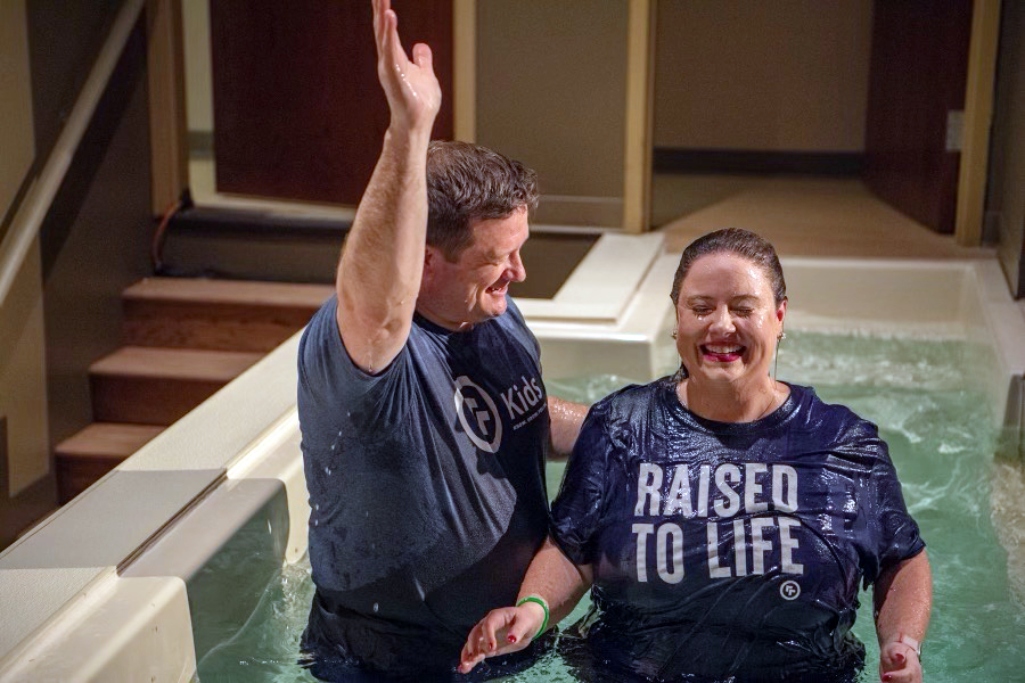Across North Carolina, pastors are receiving requests from church members the likes of which they have never seen before: religious exemption employment letters from church members.
Social media has become not only a place for individuals to express their disdain for COVID-19 vaccination employment mandates, but also a place for pastors to express their concern with the pressure they are now under to endorse religious exemption requests. Having read these concerns, I want to briefly attempt to give pastors some assistance as they wrestle through these weighty matters.
In short, Baptists of every known camp have no broad position where they have specifically stated they reject vaccines. However, there are individual Baptists of every known camp that take exception with vaccine employment mandates and their reasons are as numerous as the sands of the seashore.
How is a pastor to work through these requests? Should a Baptist pastor be expected to endorse an individual church member’s religious exemption request? Are there deeper doctrinal and theological matters that really deserve prayerful reflection at the heart of these issues?
First, there are some pastors that will simply declare, “I’m not going to consider any religious exemption requests. Period.” And while that might seem an appropriate response in some congregations, those pastors that take this position will miss the opportunity to help their church members work through the weightier issues that truly underlie this debate.
Most likely, the individual requesting the religious exemption probably hasn’t considered the deeper issues at stake, so I encourage pastors to actually have these conversations and not simply reject every request.
Second, the decision to endorse a church member’s religious exemption provides the opportunity to demonstrate a level of pastoral care that is sorely needed right now. Far too many church members have been disconnected from their ministers during the pandemic.
The frequency of interaction and the depth of conversation pastors enjoyed with church members pre-pandemic continues to remain obstructed, so there really is a need for church members to have deep conversations with their ministers regarding matters of this nature. Which then raises the question, “Am I, as pastor, the only person that should be available for this conversation?” The answer is no.
This is yet another important opportunity for pastors to equip church staff, deacons, elders and other church leaders to engage in important conversations that help church members work through important decisions with a biblical worldview and through the lens of the gospel.
In addition, many congregations have among their membership trusted healthcare professionals that can be an important resource for answering questions about diseases, vaccines, and their side effects, that few pastors are prepared to address. Involving trusted healthcare professionals in your congregation in these conversations with church leaders can be mutually beneficial.
Pastors cannot and should not shoulder these burdens alone, so this is the time for pastors to invest in the leadership development of others in the church to assist in these religious exemption conversations.
This is yet another important opportunity for pastors to equip … church leaders to engage in important conversations that help church members work through important decisions with a biblical worldview and through the lens of the gospel.
Brian Davis
Finally, and most importantly, the religious exemption conversation opens the door for an important theological and doctrinal conversation. As noted above, Baptists do not have position statements to reject vaccines, in broad terms.
The reality is very few Christian denominations have such position statements, which then leads to important conversations regarding congregational ecclesiology. Baptists are congregationalists, meaning each congregation makes its own decisions. Article VI of the Baptist Faith & Message (2000) reads: “Each congregation operates under the Lordship of Jesus Christ through democratic processes. In such a congregation each member is responsible and accountable to Christ as Lord.”
I am unfamiliar with specific Baptist congregations that have adopted policies that reject vaccines, but there’s nothing that prevents a Baptist congregation from making the decision to take such a position. That’s what it means to be congregational – the congregation decides.
So if the congregation does not have a position regarding vaccination, is the pastor expected to endorse the religious exemption request of the individual? I’m hard pressed to think of other issues for which an individual can force their will upon the congregation for endorsement, and the same should hold true for pastors.
This now brings us to the most important issue of this entire discussion: the priesthood of the believer. There will be some Baptists that will attempt to use this doctrine to justify why their pastor should provide a religious exemption endorsement in opposition to an employment vaccination mandate.
A common phrase in legal conversations is “sincerely held religious belief.” But, that phrase should not be equated with Baptist’s doctrine of the priesthood of the believer. The doctrine of the priesthood of the believer does not grant individual church members the freedom to believe anything that they want and couch those beliefs in religious terms, nor does this doctrine require that congregations and their ministers endorse the individual convictions of church members.
The doctrine of the priesthood of the believer is, at its core, not connected to relationships in the community or in the church but with an individual’s relationship with God, through Jesus Christ our Lord. It is our submission to Christ that grants us access to God, as priests, so that individuals need no other mediator to approach Him. Many of our church members need help and encouragement to think doctrinally and theologically about important decisions in life. The religious exemption vaccination conversation opens the door for just that.
(EDITOR’S NOTE – Brian K. Davis is the director of community and congregation engagement at Wake Forest Baptist Medical Center.)

